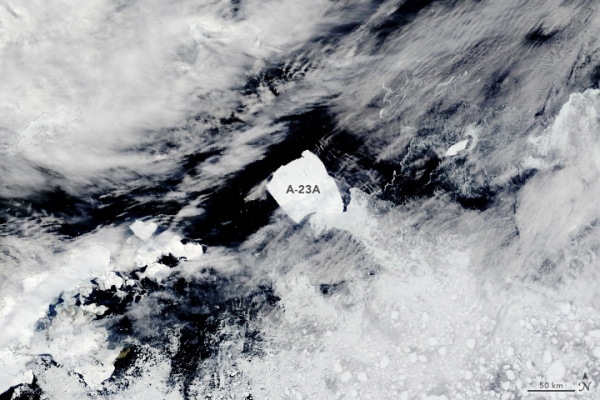For decades, Iceberg A-23A sat quietly, out of sight, off the coast of Antarctica. But the berg has been attracting notice in November 2023 as it drifts northward across the Weddell Sea—closer to shipping lanes, islands inhabited by wildlife, and warmer iceberg-destroying waters of the Southern Ocean.
On November 28, 2023, the MODIS (Moderate Resolution Imaging Spectroradiometer) on NASA’s Terra satellite acquired this image of the iceberg, 37 years after it broke from the Filchner Ice Shelf (east of the larger Ronne Ice Shelf). On this day, the berg drifted near several islands at the tip of the Antarctic Peninsula, about 1,700 kilometers (1,000 miles) from its birthplace.
The iceberg broke from the Filchner shelf in 1986 and soon became stuck on the seafloor of the southern Weddell Sea. For decades, the berg stayed stayed anchored about 200 kilometers (120 miles) from the ice shelf. The iceberg’s path, charted in data available from the U.S. National Ice Center since 2011, is visible in the map above. Notice the berg’s initial blob-like trajectory at it was buffeted by currents and winds. Despite these forces, A-23A essentially remained in the same place.
Read More: NASA Earth Observatory
Photo Credit: Wanmei Liang/NASA Earth Observatory


